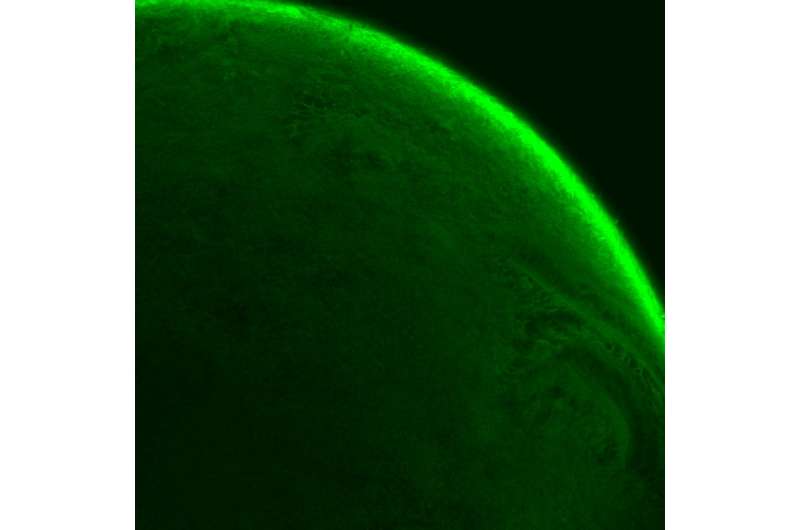A next-generation non-hormonal contraceptive for women

A hormone-free women's contraceptive with no side effects is one promising use for a new technique developed by researchers in Sweden to tighten up the mucous membrane – the body's first line of defense in protecting its inner lining.
The approach consists of cross-linking the mucus gel with chitosan, a type of polysaccharide derived from chitin, the substance that develops in the hard outer shells of crustaceans such as shrimp and crayfish. The material tightens the mucin polymer mesh barrier which lines the mucosal epithelium of our body's cavities, says Thomas Crouzier, a researcher at KTH Royal Institute of Technology in Stockholm.
The polymer slowed the diffusion of dextran polymers and cholera protein through the mucous gels, the researchers reported in the recent issue of Biomacromolecules.
Failure of the mucous barrier can lead to inflammation of the mucosa, which is the problem behind inflammatory bowel diseases, rhinitis, acid reflux and other syndromes.
And in the cervix, the usually impervious mucous barrier naturally becomes slack during ovulation, allowing sperm to penetrate and fertilize eggs.
"The polymeric material can close this possibility, and could prevent fertilization from occurring," Crouzier says. "In this way, we get a contraceptive that is not based on hormones and has no side effects."
Through his private company, Crouzier is working toward bringing a product to market. He says the contraception could be applied as a small vaginal capsule that quickly dissolves. The blocking effect has been shown to be fast, within minutes, he says.
The 100 percent bio-based material produces no unwanted side effects because it only modifies the superficial mucus layer, whether used in contraception or other therapies, such as treatment of ulcers in mucous membranes and inflammatory bowel diseases.
The researchers have also worked to improve other properties of mucous membranes, such as lubrication and moisturization. Previous work by the research team led to progress in treating dry mucous membranes.
"The starting point for us has been to regard mucous membranes as a separate material that you can work with and modify. In order to do that, one must understand the mucous membrane's functions, including acting as a barrier that stops bacteria and viruses while allowing oxygen or nutrients to pass through," he says.
More information: Sujit Kootala et al. Reinforcing Mucus Barrier Properties with Low Molar Mass Chitosans, Biomacromolecules (2018). DOI: 10.1021/acs.biomac.7b01670
















